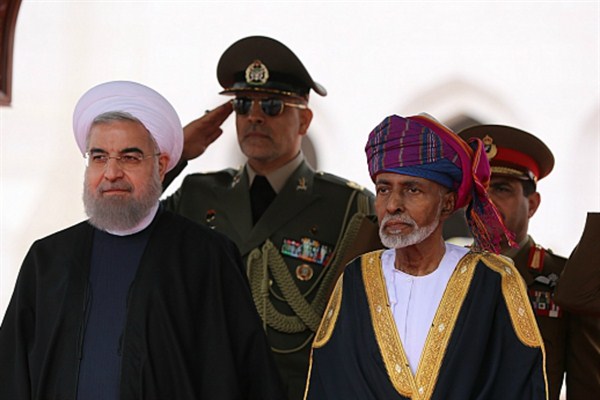Iranian President Hassan Rouhani’s visit last week to Kuwait and Oman was the latest sign of an improvement in the tone of Tehran’s relations with the Persian Gulf states, and in particular Saudi Arabia, this year. Perhaps the uncertainties around U.S. President Donald Trump’s intentions, as well as the recent thaw between Turkey and Russia, are factors. In any event, it underscores the strategic trend of greater regional ownership of local problems.
Rouhani’s stopovers in Kuwait and Oman followed a number of developments in the Persian Gulf region since January that suggest that regional powers are seeking to step back from the brink of all-out conflict. A visit by the Kuwaiti foreign minister to Tehran in late January, with an unspoken mandate from the Gulf Cooperation Council states, was a signal of their desire to lower the temperature in regional relations, with Iraq and Oman offering to lend a hand in this potential rapprochement. Iranian Foreign Minister Mohammad Javad Zarif has continued to advocate for a peaceful dialogue among the neighbors, most recently this weekend in Munich.
The Saudis, for their part, sent condolences on the death of former Iranian leader Akbar Hashemi Rafsanjani last month, and have signaled a willingness to resume talks on Iranian participation in the hajj. Iran’s exclusion from the annual religious pilgrimage last year triggered an uptick in a vitriolic sectarian war of words between the two countries. Riyadh nonetheless remains very skeptical that the current Iranian government can make the changes needed to bring about regional peace. At the Munich Security Conference this weekend, Saudi Foreign Minister Adel Jubeir repeated a familiar litany of grievances against Iran and associated himself with tough new measures to contain and constrain Iran, while professing to be open to dialogue.

